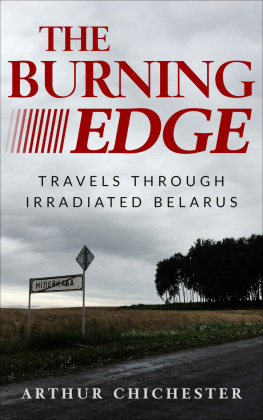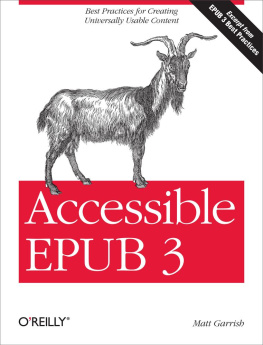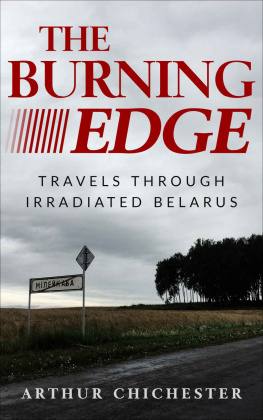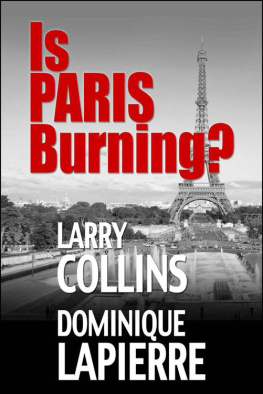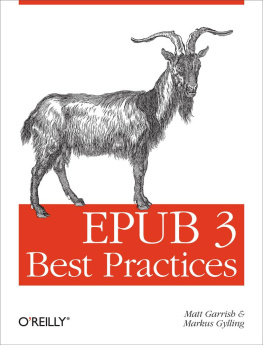Chichester - The Burning Edge
Here you can read online Chichester - The Burning Edge full text of the book (entire story) in english for free. Download pdf and epub, get meaning, cover and reviews about this ebook. year: 2018, publisher: Robacuna Publishing, genre: Detective and thriller. Description of the work, (preface) as well as reviews are available. Best literature library LitArk.com created for fans of good reading and offers a wide selection of genres:
Romance novel
Science fiction
Adventure
Detective
Science
History
Home and family
Prose
Art
Politics
Computer
Non-fiction
Religion
Business
Children
Humor
Choose a favorite category and find really read worthwhile books. Enjoy immersion in the world of imagination, feel the emotions of the characters or learn something new for yourself, make an fascinating discovery.
- Book:The Burning Edge
- Author:
- Publisher:Robacuna Publishing
- Genre:
- Year:2018
- Rating:5 / 5
- Favourites:Add to favourites
- Your mark:
- 100
- 1
- 2
- 3
- 4
- 5
The Burning Edge: summary, description and annotation
We offer to read an annotation, description, summary or preface (depends on what the author of the book "The Burning Edge" wrote himself). If you haven't found the necessary information about the book — write in the comments, we will try to find it.
The Burning Edge — read online for free the complete book (whole text) full work
Below is the text of the book, divided by pages. System saving the place of the last page read, allows you to conveniently read the book "The Burning Edge" online for free, without having to search again every time where you left off. Put a bookmark, and you can go to the page where you finished reading at any time.
Font size:
Interval:
Bookmark:
THE BURNING EDGE
TRAVELS THROUGH IRRADIATED BELARUS
ARTHUR CHICHESTER
2018 ARTHUR CHICHESTER. ALL RIGHTS RESERVED
ROBACUNA PUBLISHING
All rights reserved. This book or any portion thereof may not be produced or used in any manner whatsoever without the express written permission of the author except for the use of brief quotations in a book review.
Cover photo: Somewhere on the borderlands near Slavgorod
Back cover: Siboli residents. Slogan-building near Hotimsk. Vova. Radiation sign near Vetka
All photos are the property of Arthur Chichester
First edition published by Robacuna Publishing 2018
ISBN: 9781980787518
Follow your dreams Chigsbut first go and do your homework
DEDICATION
O n the edge of a dark wood situated in a northern suburb of the Belarusian capital stands a white church. Up in the bell tower the bearded priest grips the rope with powerful hands and sinks his cloaked body to the ground, sending the reverberating sound of the iron bell out over the treetops where it dissipates into the night sky.
Inside the church, watched over by icons, a coffin lays on a table surrounded by the friends and family of the middle-aged man it contains. The deceased lies in his best suit with a peaceful look on his face as though hes just resting after a long day at work. The women present, all with their heads covered by shawls, take turns to read prayers from the Orthodox Bible at the lectern, filling the large echoey hall with the gentle sound of ancient Slavonic words. Meanwhile, us men sit beside the coffin in thoughtful silence, our stares alternating between the face of our deceased friend and our own clasped hands, no doubt like myself they are contemplating their own mortality and how a man who recently seemed so healthy could now be lying here in the wooden box in which he shall soon be buried.
Perched close to the coffin on a small wooden stool is the deceased mans mother, an elderly woman with deep wrinkled features who has not taken her eyes off her dead sons face since I arrived an hour earlier. She will end up staying the night beside him, refusing to leave his side and take rest even for a minute despite friends offering to take her place, assuring her that her son shall not be left alone. The partner of the dead man, a beautiful red haired woman dressed head to toe in mourning black like all the women in the hall, silently makes tea and sandwiches in the cramped kitchen at the back of the church for the mourners who have come to pay their respects at this late hour of a summers evening. She masks her pain with smiles and by feigning interest in the small talk at the churchs kitchen table; mundane conversations we engage in to somehow cope with the brevity of the situation. But she isnt really with us. Her mind is elsewhere, no doubt somehow trying to come to terms with the sudden and unexpected loss of her partner and friend and, I expect, with what the future holds for her and knowing that she will have to face it alone. Just a couple of months before I had been in their apartment sharing a meal with them at their kitchen table in the suburbs of the city, toasting their health. And now so suddenly, so unexpectedly, this.
The man in the coffin, holding a small wooden cross in his carpenters hands, made the bed on which I slept whilst I was in Minsk. It was the bed in which one night I woke and in the darkness lay imagining a journey into the radiated forests of Belarus.
His name was Igor and this book is dedicated to his memory.
PROLOGUE
I write this from a rundown hotel room constructed long ago in a small bleak town hacked out of the dark forests that surround it. It is a place where outsiders rarely visit and where those with the opportunity to do so have left long before.
Outside through the cracked window, as the evening darkness rolls in slowly over the grey town I see Lenin, his arm is held aloft pointing past me somewhere towards the abandoned factories that stand guard on the edge of town, encasing the place inside a wall of cracked cement and rusting rebar. In contrast to the emaciated people who walk the streets in this distant outpost of the country Lenin is well cared for, his plinth freshly painted, the black tiles beneath his thick shoes shiny and new.
At one end of the square the same people whom I have spent the last few weeks travelling among huddle under a steel bus shelter to avoid an unexpected evening downpour, all waiting for their way out of the town to arrive. To where I don't know. This town situated in what locals collectively call The Zone, is surrounded by villages and settlements where life is even harder, where the people feel even more neglected by a government who do not have the budget to provide well for them. Places unknown to all but those who live there, but where, despite the hardness of a life lived in a land that has suffered the cruelest of fates, the spirit of the Belarusian people refuses to be extinguished.
Belarus is a land which is synonymous with suffering. A historical pawn of greater powers: Poles, French, Swedes and Germans have all rolled over this flat marshy land by horses hoof and tanks track, trampling all beneath them. And when no enemy appeared from the forests to the west they were killed instead by their Slavic brothers from the east in terrors and reforms done in the name of failed ideologies. Nowhere suffered more in the 20th century than this small green land, its soil stained red as though the national flag were turned upside down.
Every town and village I visit has a memorial inscribed with the names of men and women who left to fight for their land, for their family, or sometimes not knowing for what exactly, but who did not return. Blood lines that had survived unbroken from distant times destroyed by bayonet and bullet, the only reminder to their very existence a name engraved in stone. And as though the land had not suffered enough, in 1986 Belarus suffered one final cruel invasion, a victim again through no fault of its own.
When the reactor exploded at Ukraine's Chernobyl nuclear plant on that fateful day in April it sent its deadly poison into the night sky from where it slowly drifted north, over the border from where it came before settling down onto the towns and forests, rivers and farmlands of this small country, infecting everything and everyone in some way.
I have spent the last few weeks riding antiquated buses and suburban trains to the end of the bumpy line. Walked muddy roads and remote forest tracks, staying in run down hotels and wooden cottages in ancient villages unmarked on modern maps, a flaneur of the nations tragic hinterland, wanting to see for myself a corner of Europe so little known to outsiders but at times questioning my own sanity and will to continue.
It's now half past nine and the passengers sheltering beneath the bus stop are gone. The town square is empty except for Lenin who stands awake in the darkness, his eyes fixed on the constellations. A few lights dimly shine out from the pre-fabricated apartment buildings opposite, and as the rain rattles the window of my hotel room I return to my bed and fall asleep to the voice of a moustached president speaking from the television screen in the corner.
PREFACE
S omehow unexpectedly I had ended up living in Minsk, the austere capital of the Republic of Belarus, studying at the State Linguistic University that is situated just a stones throw from the Eternal Flame which commemorates the victory over the fascist armies who had burned and slaughtered their way across the country almost eighty years before.
My original plan had been to go to Moscow for my studies but a sudden last minute demand for more tuition money than originally agreed upon had left me hastily searching around for an alternative school on a matter of principle. Phone calls were made and faxes sent to unfamiliar international dialling codes and a week later I found myself waiting for an interview in a small subterranean room at the red bricked Belarusian embassy building tucked away in a salubrious corner of West London. An hour later I had my visa and a week after that I landed at Minsk 2, the capitals functionally named international airport.
Next pageFont size:
Interval:
Bookmark:
Similar books «The Burning Edge»
Look at similar books to The Burning Edge. We have selected literature similar in name and meaning in the hope of providing readers with more options to find new, interesting, not yet read works.
Discussion, reviews of the book The Burning Edge and just readers' own opinions. Leave your comments, write what you think about the work, its meaning or the main characters. Specify what exactly you liked and what you didn't like, and why you think so.

